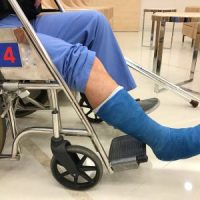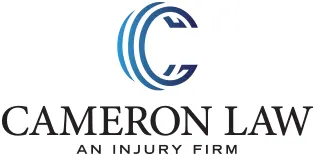8 Signs Your Loved One Is Being Abused in a Nursing Home

Placing a loved one in a nursing home can be a heartbreaking decision to make. You want to make sure that they are being taken care of and receive professional care during their stay in the facility.
However, it is not uncommon for elders to be subjected to abuse in nursing homes. Nursing home abuse can be physical, emotional, or sexual. It is important to know the warning signs of abuse to protect your loved one from harm.
If you believe that your loved one has been a victim of abuse in a nursing home, reach out to Cameron Law. Our nursing home abuse lawyer helps families save their loved ones from harm while in a nursing home, seek justice, and hold abusers and the facility accountable.
8 Signs of Nursing Home Abuse to Watch Out for
According to a study on elder mistreatment published on the website of the National Center on Elder Abuse, one in 10 Americans aged 60 and older experience some form of elder abuse. If your loved one is in a nursing home, you should watch out for the following signs of abuse:
- Unexplained wounds. If your loved one has unexplained bruises or injuries, it is a sign that they may be experiencing physical abuse. You should ask the nursing home staff how they occurred, and if they cannot provide a satisfactory explanation, report it to the authorities.
- Behavioral changes. If your loved one is exhibiting different or unusual behaviors, it may be a sign of emotional abuse. This may include being withdrawn, agitated, or fearful. You should talk to them about their experiences and report any concerns to the nursing home staff.
- Sleep problems. If your loved one is having difficulty sleeping, it may be due to abuse. This is often due to the stress and anxiety caused by the abuse. If they are experiencing nightmares, it may also be a sign of trauma.
- Poor hygiene. If your loved one is not being properly cleaned or groomed, it may be a sign of neglect. Neglect can also include poor nutrition, dehydration, and lack of medical care. You should speak to the nursing home staff if you notice any changes in their cleanliness, nutrition, or medical care.
- Withdrawal. If your loved one is withdrawing from social interactions or other activities they once enjoyed, it may be due to abuse. They may also express feelings of loneliness or isolation.
- Sexually transmitted diseases. If your loved one contracts a sexually transmitted disease, it could be a clear sign of sexual abuse. This can be a difficult topic to discuss but is important to address with them and report to the nursing home staff.
- Inability to visit your loved one. If the nursing home staff is preventing you from seeing your loved one, it may be a sign of abuse. This can include staff always being present during visits, not allowing private visits, or making excuses for why your loved one cannot see you.
- The facility’s staff are unwilling to answer your questions. If the nursing home staff is uncooperative or unwilling to answer your questions, even about minor concerns, it may be an indication of abuse. They may attempt to brush off your worries or downplay the importance of the issue.
Knowing the signs of abuse can help you protect your loved one and report any issues to the appropriate authorities.
Seek Justice for Your Loved One with Cameron Law
It is crucial to be vigilant and observant when it comes to your loved one’s care in a nursing home. If you suspect that your loved one is being abused, you should take action immediately to ensure their safety and well-being. Our results-driven and dedicated lawyer at Cameron Law can investigate your concerns and hold abusive staff and/or the facility accountable for their wrongful conduct. Call 702-745-4545 today to set up a free case evaluation with our lawyer.
Source:
ncea.acl.gov/What-We-Do/Research/Statistics-and-Data.aspx#prevalence


